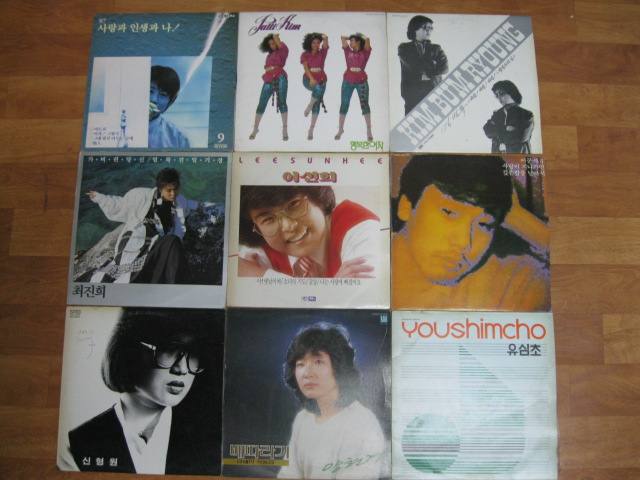
Let me tell you about my favorite spot in all Korea. I won't name it, since I don't want to take the blame when, for other reasons, it inevitably gets too popular.
But I will say that you'll find it near a major Seoul art school. You have to go down some stairs to get to it, but once you enter, you'll find that you've gone not just underground, but back in time. There you can eat a mean plate of tofu kimchi, drink a stiff Long Beach iced tea, and spend the evening listening to the DJ of the night's selections from their wall of Korean vinyl records from the 60s, 70s, and 80s — and only those.
This might sound unremarkable if you engage in the West's, or even Japan's, thriving retro culture, but this place's singular focus on the music of thirty, forty, fifty years ago — and on the domestic music of thirty, forty, fifty years ago at that — makes it a true oddity in Korea. The Korean historical consciousness has long fascinated me: they'll tell you all sorts of stories from way back in the country's "5,000 years of unbroken history," but if you mention a ten-year-old song, they'll wonder what could ever interest you about such an irrelevant artifact.
I've heard of this conflict, or at least misunderstanding, erupting with some frequency and in various domains between Koreans and Korea-resident foreigners, especially Westerners, from music to style to architecture: many of the latter came to enjoy the very same elements of the culture many of the former would prefer to leave behind. It only exacerbates the situation when Koreans assume the Westerners got interested in Korea because of modern "K-pop." Trust me on this one: they did not get interested because of modern K-pop.
But they may have got interested because of old K-pop, or whatever came before K-pop proper. Here you can listen to three extended — and I mean extended — mixes of just that: pure Korean pop hits from the 70s and 80s, each clocking in around six hours. I can fire up any one of them and feel transported straight back into that favorite Seoul bar of mine, though I have to do without their decor of meticulously curated vintage electronics, fake palm trees, and — bizarrely, for a Los Angeles resident such as myself — posters of California.
So what draws me to this ever-more-distant time in a foreign land that I never could have even come close to experiencing first-hand? Many aspects do, but I find that one comes first to mind, something for which Korea has more recently grown quite famous indeed: plastic surgery. That is to say, they did a lot less of it in the 70s and 80s. Why do I consider that a good thing? Let's just say the proof is in the pop star.







